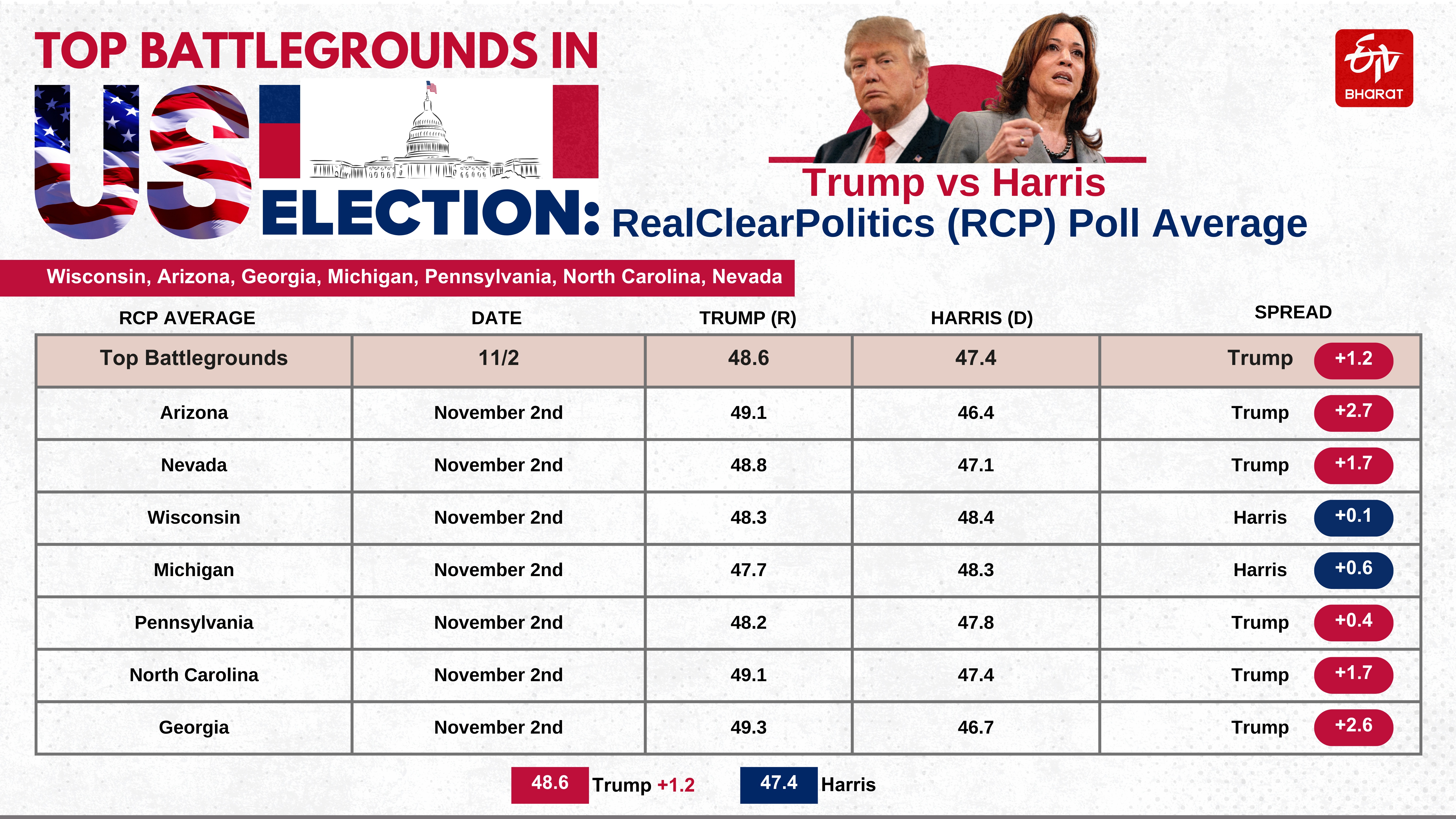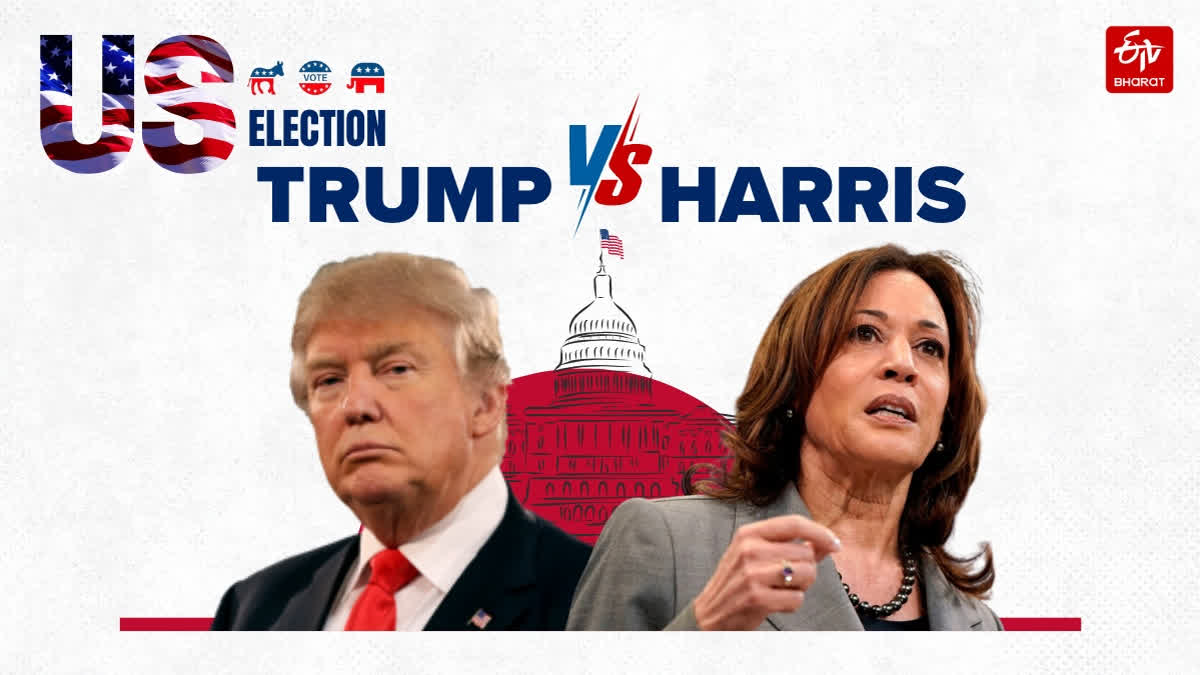The world's most challenging and most extended job interview is about to come to an end.
On November 5, Americans will vote for the 47th president of the United States in a historic election. If Kamala Harris wins, she will be the first South Asian and Black woman to be elected as the leader of the free world. If former President Donald Trump wins, it will be the first time since 1892 that someone will have won non-consecutive terms. The last candidate who achieved this remarkable feat was Grover Cleveland, who became president in 1884, lost in 1888, and came back to win in 1892.
American elections are different from the elections of every other country in the world. First, the president is directly elected by the voters, as opposed to the process in countries like India, the United Kingdom, or Canada, where voters select the winning legislative party in parliament, and its leader becomes the Prime Minister.
However, what confuses people is that the American president is not elected based on the total number of votes around the country. The so-called popular vote in America is a meaningless statistic. What matters is if a candidate wins the electoral college vote in each state. In effect, America's elections are no one national voter choice; they are the sum of 50 state-by-state election contests.
The magic number is 270 electoral college votes. In particular, all eyes are on how each candidate performs in seven so-called battleground states: Pennsylvania, Wisconsin, Michigan, Georgia, Arizona, Nevada, and North Carolina. Polling averages by RealClearPolitics, reported as of November 2, show the following chart. If Trump can hold this lead on election day, he will become the 47th president.

Political polling is as much science as an art. Taking the averages of high-quality polls conducted by independent, professional organizations will help lower the error from relying on a single survey. The RCP average is the gold standard in this regard.
Americans say in survey after survey that four issues matter the most to them: The economy (inflation, jobs, salaries); illegal immigration (nearly 20 million migrants have crossed the border since Trump left office); women's rights (including abortion); and foreign wars and America's standing in the world.
Harris's challenge has been to distance herself from President Biden's disastrous policies. The latest jobs report showed that far fewer jobs were created than expected. With Ukraine losing despite America spending $200 billion on the war and violence continuing to expand in the Middle East, Americans are questioning the wisdom of the Biden-Harris policies in international relations. Nearly 74% of Americans feel that America is headed down the wrong track. Historically, when the wrong track numbers are so bad, the incumbent candidate, in this case Harris, loses.
The winning candidate's ground game will determine the outcome. Many women are excited for her candidacy and because more women vote than men, Harris is relying on women to carry her through. If Harris can excite her base to vote in those battleground states, she could win. However, women also care about the economy, jobs, and the ability to help run a household.
Another complication is that America votes three ways: early in-person voting, which in some states started on September 11; in-person voting on November 5; and voting by mail. In some states with very large land areas and low population density, such as Alaska, voting is only done by mail.
In the battleground states, the election can be so close that a winner may not be called on election night until all the mail-in ballots have been counted. In fact, in 2020, Trump was leading in Pennsylvania on election night, but the Associated Press called the race for Biden after four long days when thousands of mail-in ballots were counted.
There is also the issue of third-party candidates. Consider Michigan, one of the critical battleground states, which has a sizable Muslim American population. Many Arabs in America feel that the Biden-Harris policies in Israel, which have helped kill over 40,000 Palestinians, are too harsh. These traditional Democratic Party voters are willing to cast their ballots for a third-party presidential candidate, Jill Stein. In a close election, such an action could swing the state to Trump.
Arab Israeli politics are also playing out in Pennsylvania. Many people thought that Kamala Harris would pick that state's popular governor, Josh Shapiro, to be her running mate. But, afraid of a backlash from Arab Americans around the country, she decided against Shapiro, who is a Jew. Her decision now is having a different effect, making Pennsylvania a lot closer than previously thought if Shapiro had been chosen.
In such a close, nail-biting election, the winning side will celebrate, and the losing side, being bitter, will protest, file lawsuits, and may even resort to violence. Such are the stakes in electing the leader of the free world.
No matter who wins or loses, Americans will be happy for one thing. This super-long election season is finally coming to an end: No more campaign ads, no more uncomfortable conversations with friends and family, and no more spending hours on social media waiting for the latest news update.
America can finally get back to living life.
Read More



